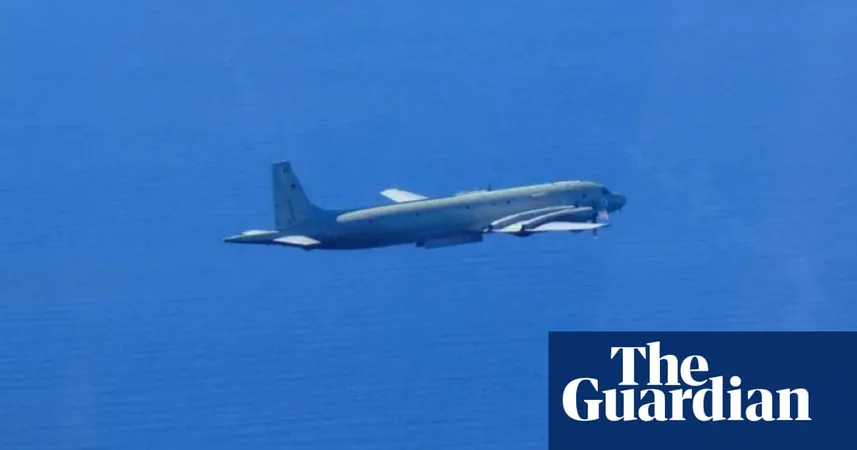
Tensions Soar as Japan Deploys Flares Against Russian Aircraft in Unprecedented Airspace Violation
2024-09-23
In a striking escalation of regional tensions, Japan's defense ministry announced that it deployed flares from its fighter jets for the first time to urge a Russian reconnaissance aircraft to leave its airspace. This development marks a worrying increase in military activity between Russia and China near Japanese borders.
On Monday, the Japanese Air Self-Defense Force scrambled an undisclosed number of F-15 and F-35 warplanes in response to a Russian II-38 maritime patrol aircraft that reportedly ignored radio warnings. Defense Minister Minoru Kihara confirmed this incident, stating that the Russian aircraft encroached on Japanese airspace multiple times during its five-hour flight over Rebun Island, located just north of Hokkaido.
Kihara expressed deep regret over the airspace violation, stating, "We lodged a very serious protest with the Russian government via diplomatic channels and strongly urged them to prevent a recurrence." He underscored Japan's intent to utilize the flares as a legitimate countermeasure against future violations, emphasizing a readiness to defend national airspace without hesitation.
Prime Minister Fumio Kishida instructed government officials to maintain a "firm and calm" approach in handling the incident and to collaborate closely with the United States and other allied nations. Chief Cabinet Secretary Yoshimasa Hayashi noted that while the purpose of Russian military maneuvers remains unclear, recent activities have intensified in conjunction with the ongoing conflict in Ukraine, with Russia’s military asserting its presence in Japanese-adjacent waters.
The provocative incursion came just the day after a joint naval exercise involving Chinese and Russian warships took place in the vicinity of Japan. This is part of a broader pattern of increasing military cooperation between China and Russia that has triggered alarm in Tokyo. Japanese defense authorities are particularly concerned as such collaborations coincide with assertive Chinese actions in nearby waters.
In the preceding months, Japan has seen a noticeable uptick in incursions. Noteworthy incidents include Russian military aircraft circling southern Japanese airspace earlier in September, alongside a brief violation by a Chinese Y-9 reconnaissance aircraft. Additionally, the Chinese aircraft carrier Liaoning recently moved dangerously close to Japan's territorial waters, prompting defense responses.
Japan's Air Self-Defense Forces reported scrambling jets 669 times between April 2023 and March 2024, a staggering 70% of those incidents involving Chinese military aircraft. These statistics highlight the mounting challenge Japan faces as it seeks to secure its airspace amidst increasing foreign military activity.
Adding fuel to the fire, the long-standing territorial dispute over the Northern Territories—stripped from Japan by the Soviet Union following World War II—continues to complicate relations with Russia. This unresolved conflict has cast a shadow over prospects for a formal peace treaty, exacerbating tensions further.
Japan's unwavering support for Ukraine has also contributed to strained diplomacy with Moscow, illuminating the extent to which these broader geopolitical dynamics are embroiling Japan in a web of complex security challenges. As military activities heighten in the region, many are left questioning how Tokyo will navigate the turbulent waters of international relations moving forward.



 Brasil (PT)
Brasil (PT)
 Canada (EN)
Canada (EN)
 Chile (ES)
Chile (ES)
 España (ES)
España (ES)
 France (FR)
France (FR)
 Hong Kong (EN)
Hong Kong (EN)
 Italia (IT)
Italia (IT)
 日本 (JA)
日本 (JA)
 Magyarország (HU)
Magyarország (HU)
 Norge (NO)
Norge (NO)
 Polska (PL)
Polska (PL)
 Schweiz (DE)
Schweiz (DE)
 Singapore (EN)
Singapore (EN)
 Sverige (SV)
Sverige (SV)
 Suomi (FI)
Suomi (FI)
 Türkiye (TR)
Türkiye (TR)